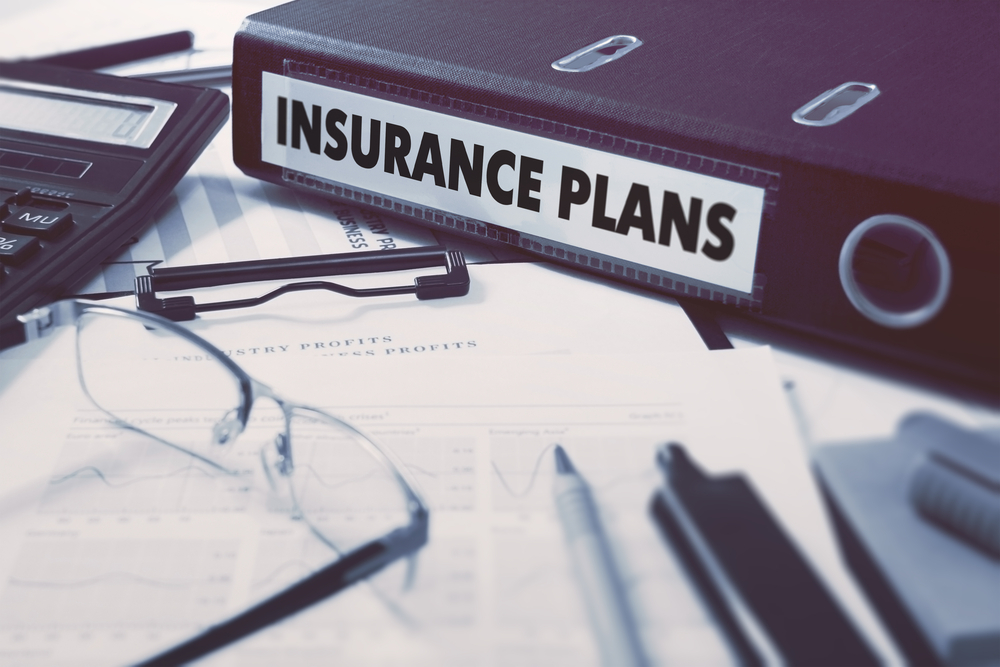Homeowners Insurance 101: What Is an Insurance Binder?
There is a lot to consider when you buy a home, insurance being one of the most important things. You can’t go into a shop and walk out with insurance in the same way that you might buy a sandwich because the process involves legal documents. However, there is no reason to be confused or daunted by the process. When you understand how homeowners’ insurance works, you will be able to make good choices about your coverage. One step of the process that you should know about is the insurance binder.
A Definition of the Insurance Binder
The insurance binder is the temporary proof of coverage you receive when you purchase your homeowners policy. It contains information about the assets you have insured, your deductibles, and your limits.
Frequently Asked Questions About the Insurance Binder
For How Long Is the Binder Effective?
The binder usually has an expiration date set within 10 and 30 days after it is issued. When you receive your official policy, the binder dissolves immediately, even if its expiration date is further out. Any legal language and conditions in your policy take precedence over those spelled out in the binder. However, this should not mean any changes to your policy because there should be no difference between the terms of the official policy and those described on the binder.
Why Can’t Your Insurance Company Issue Your Policy Right Away?
After you choose an insurance policy and work with your agent to establish the exact terms, the insurance company needs time to underwrite everything. The term underwriting refers to the legal process by which the company must approve, create, and process the paperwork. In the interim, you receive the binder to show that you have purchased insurance and that you are covered while you wait for the official paperwork.
Why Is it Important to Receive a Binder?
It Provides Proof of Insurance to Other Parties
There are three main reasons why having the binder is so important. First, if you need to get a mortgage to help pay for your home, the entity that issues your mortgage usually requires proof of insurance. If you need to close on a home quickly, you can show your binder to prove that you are eligible for the mortgage without waiting for the official policy to be completed.
It Is Legally Enforceable
Second, if there is an accident, and you need to file a claim before you receive the official policy, you will refer to the binder during the claim submission process. The binder will provide proof that you are insured and that you are eligible for a payout if your claim is verified.
It Is a Reference for You
Third, the binder can help you check the terms of your policy to ensure that you have all the coverage you need. You can also refer to it to check that all the terms you discussed with your agent are included. It is a document that is easy to navigate because it doesn’t include legal language and definitions of legal terms.
What Kind of Document Will You Receive After the Binder?
After your insurance company completes the underwriting process, you will receive a large document called your insurance contract. This document is sometimes referred to as your policy. You don’t need to worry about confusing legal language in the contract. The essentials are expressed in plain terms on the first page of the document. This page is called the declarations page or the dec sheet within the industry.
Can You Change the Terms Outlined in the Binder?
Yes. The terms in the insurance binder are legally binding, but they can be renegotiated. If you want to make a change to the terms outlined in your binder, you can work with your insurance agent. This could involve reassessing the value of your home, adding coverage, or declaring the acquisition of more property. For example, if you get engaged, you might want to add your engagement ring to your policy. These changes can usually be done via an endorsement to the policy.
Most likely, the need to change the terms of your policy will arise after your official policy comes in. In that case, the binder will have expired, and the changes will be made directly to the insurance contract.
Understanding the Contents of the Insurance Binder
When you receive an insurance binder, it should contain all the terms of your policy, minus the exact contract wording. Homeowners insurance can provide coverage for:
- Your home
- Other structures on your property
- Other types of property you own
- Your legal responsibility to pay others in the event that you cause physical harm to them or damage their property
- Reimbursements if you are put out of your home – known as loss of use on a policy
The length of time your policy is in effect, the price of the policy, and your coverage limits for various types of losses are all expressed in the binder. Read on, and we will explain the most common terms of homeowners insurance, and how they appear in the binder.
Your Coverage: the Who, What, When, and Where
Your insurance binder will list the name of the insurance company that is providing the coverage, the name of the authorizing agent, the names of the insured individuals, the type of home that is being insured, the address of the home, any other insured structures on the premises, and the insured contents of the home. Sometimes, one homeowner is listed as the insured, and other individuals (possibly co-owners) are listed as “additional named insureds.” The binder will specify the date on which the policy becomes effective and the length of the term.
The Type of Coverage You Purchase
There are three different types of homeowners’ insurance: HO-2, HO-3, and HO-5. Generally, the higher the HO number, the greater the coverage. HO-2 insurance provides limited coverage for your home itself. HO-3 insurance covers your home and some of its contents. HO-5 insurance covers your home, and all of your property contained therein. Your insurance binder will specify what level of coverage you have purchased.
Special Limits and Exclusions
A Definition of Special Limits
If some types of property are excluded from your policy or have a limit to their coverage, they will be listed as special limits. For example, you might have a jewelry collection that includes a $500 gold bracelet that you received as an anniversary gift and a $2,000 necklace that you inherited from your grandmother. If your policy has a $1,500 limit for jewelry, this is the amount you will receive if both the necklace and the bracelet are stolen. In this situation, you might want to work with your agent to purchase additional insurance.
Examples of Special Limits
The kinds of items that frequently have special limits include:
- Antiques, collectibles, and fine art
- Wine, furs, and other luxury items
- Sports equipment and bicycles
- Swimming pools
- Cash
- Securities
- Guns
- Property being used for a business
- Silverware
- Electronic data restoration
- Jewelry
- Trailers and boats
The Risk
What Is the Risk?
The risk is the value of the property that is being insured. The binder will go into specifics about what kind of home (house vs. condo vs. apartment) is being insured and how much the property is worth. It should also specify the value of the insured contents. It will specify the amount of insurance on the home or property, referring to the maximum amount of money that can be paid out in the event of a claim.
How Is the Risk Determined?
The risk can be determined either by the market value of the property or by calculating how much it would cost to replace everything in the event of a total loss. You can work with your agent to determine which method can get you the more valuable policy.
Personal Liability Insurance
A Definition of Personal Liability Insurance
Personal liability insurance is the kind of coverage that protects you in the event that someone files a claim against you for a bodily injury or damage to their property. It can cover both the amount for which you are found liable and legal fees, regardless of whether or not you are truly at fault. Not all people purchase personal liability insurance with their homeowner’s policy, but without it, one accident can leave you deeply in debt. Not only can your assets be taken, future wages can be garnished towards your liability if you do not have the financial means to pay immediately.
Situations in Which You Might Need Personal Liability Insurance
Personal liability insurance can be helpful in the event that a person gets injured on your property—perhaps by tripping over your steps. It can also cover situations in which negligence on your property adversely affects someone else’s property, for example, if your tree falls on someone’s roof. Your liability insurance can extend to the actions of members of your household and your pets as well. This means that if your dog bites the mail carrier or your kids accidentally throw a ball into a neighbor’s window, you can use your policy.
Personal Liability Insurance Does Not Pertain to Cars
One thing to note about personal liability insurance is that it does not cover accidents or injuries that involve vehicles. For that kind of coverage, you need to get car insurance.
Deductibles and Coverage Limits
Understanding Deductibles
Your deductible is the amount of money you will pay in the event of an accident before the insurance is responsible for a payout. If you have a $1,000 deductible and an accident occurs that costs $5,000, you would pay the first thousand. Your insurance company would pay the rest. In cases that involve great loss, the deductible can sometimes be waived. You should discuss this possibility with your insurance agent.
Understanding Coverage Limits
Your coverage limit refers to the maximum amount of money the insurance company is responsible for paying you in the case of specific losses. For example, the binder will set a limit for how much you will be paid if your home incurs a total loss.
Another coverage limit will apply to structures on your property. Often, these limits are established using a percentage of the coverage you have for your home. So, if your home is covered at $200,000 and you have 10% coverage for a potting shed and a garage, you have a coverage limit of $20,000 for these structures.
Your Premium
The binder will specify the price of your insurance policy. This is also referred to as your premium.
Insurance Endorsements
What Is an Endorsement?
An endorsement, also referred to as a rider, is an amendment to your policy. It is a way to add coverage, limit coverage, or make other changes to the contract terms without dissolving the entire agreement. Endorsements can be created when the policy is purchased or after it goes into effect. In the former case, the endorsements will be spelled out in the binder.
How Endorsements Are Used
Endorsements can be used in many situations. For example, if you intend to add a swimming pool, you can request an endorsement specifying that it will be covered under your policy. They can also be used to outline a period of renovation and how it will affect your policy. Basically, any change to your policy can be addressed with an endorsement. Once in effect, the terms of the endorsement override the original terms.
Conclusion: Your Insurance Binder Is Your Legal Proof of Insurance
Your insurance binder is an important part of the insurance process. It contains all the essential, legally binding information pertaining to your homeowners insurance. The terms of the binder reflect all of the terms that you and your agent establish.
When you need an official, legal document to stand in place before your multi-page insurance contract comes in, you can use the binder. It is effective for demonstrating that you have insurance to third parties (such as a bank) and for filing a claim in the event of an accident.
Contact Absolute Choice Insurance for more information on homeowners insurance and for all your other insurance needs. We believe the process of getting insurance should be as straightforward as possible. We can be reached by phone or online:
South Florida Phone: 305-275-1777
Central Florida Phone: 407-344-4444
Website: www.absolutechoiceinsurance.com



